Investor's Corner
“We Need To Be Evangelists,” Tesla Tells FTC
Tesla general counsel Todd Maron told the FTC this week that traditional auto dealers have a basic conflict of interest with selling electric cars.
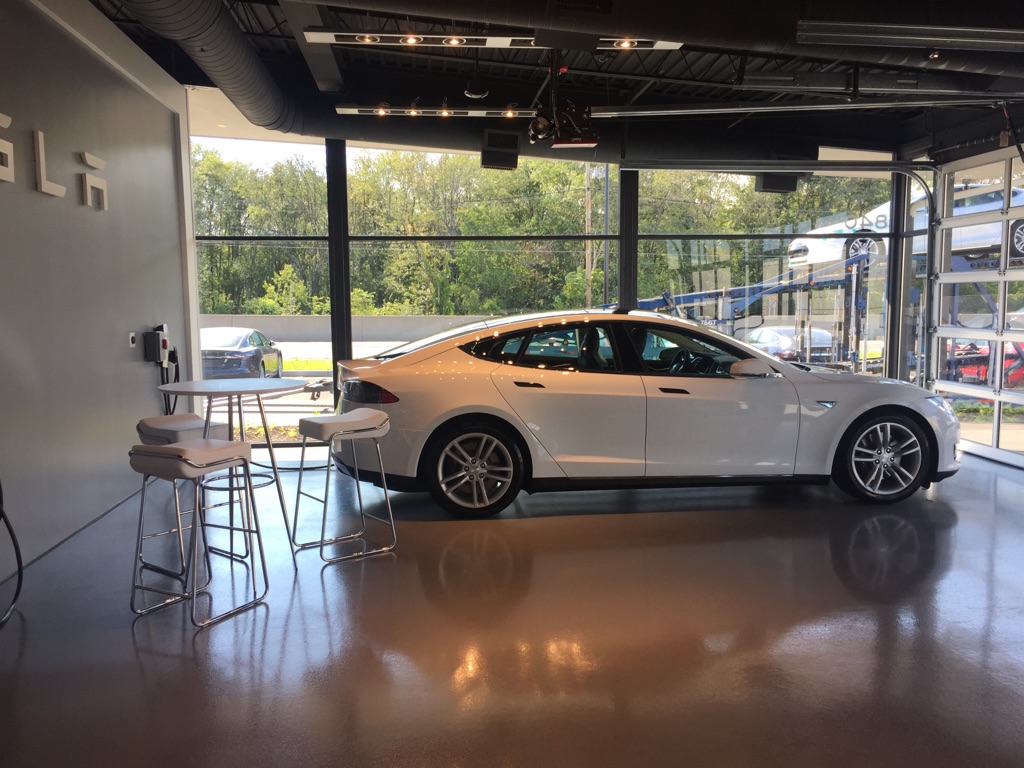
At the Federal Trade Commission panel discussion on Wednesday, Tesla general counsel Todd Maron made this opening statement:
“Any discussion of why Tesla sells directly comes back to our mission. Our mission is quite specific. It is to accelerate the world’s transition to sustainable transportation. You can say we’re true believers and it wouldn’t be an unfair characterization. That’s our mission because we fervently believe that transitioning to electric vehicles is critical to the health of our planet and simply because we believe that electric vehicles are superior vehicles to their gas-powered counterparts. They’re higher-performing, they’re more efficient and they’re safer than gas-powered cars.”
The FTC has indicated it favors direct sales, despite determined opposition from franchise dealers in several states. Maron used the panel discussion to expand on why Tesla does not think dealers are the best way to get the message about electric cars out to potential customers. It takes a lot of effort to explain new technology to people, he said. Dealers are interested in moving as many cars as possible in the shortest possible time.
Usually, most of the discussion that takes place between a dealer and customer revolves around price, not educating the consumer. You can’t expect a dealer to do your evangelizing for you, Maron said. Tesla doesn’t want or need sprawling sales lots brimming with hundreds of cars. Tesla builds each car for a specific customer. It doesn’t stockpile inventory the way traditional dealers do. It also doesn’t play pricing games with its customers. Maron thinks most dealers would have no idea how to do business the Tesla way.
With margins on new cars razor thin, most dealers are focused on making money from repairs and service. “We can’t offer that to any franchised dealer, because we only profit in one way: new car sales and new car sales alone. We can’t make money from service, because our cars have far less parts than gas-powered cars. There are no regular service visits for engine tune-ups and oil changes. We don’t have an engine. We don’t have oil.”
Maron indicated dealers have a basic conflict of interest with the Tesla mission, according to Autoblog. Tesla believes that gas-powered vehicles should “be replaced entirely” by electric vehicles. “Even if you wanted to outsource the responsibility of communicating this message, it would be impossible for traditional dealers to convey this adequately,” he said. “This isn’t a knock on them. Dealers are not fundamentally convinced of the mission of EVs as we are. They make 99 percent of their revenue off gas-powered cars.”
Maron is not the only one who thinks traditional dealers are road blocks on the pathway to electric cars. The Institute of Transportation Studies at UC Davis also claims most dealers don’t want to be bothered with selling EVs. People who go to a dealer to buy an electric car report that sales representatives are poorly trained and often try to switch them to conventional cars rather than take the time to educate them about the advantages of electric cars.
At the hearing in Washington, FTC chair Edith Ramirez said that, “The automobile marketplace may be on the precipice of dramatic change.” Was that a hint that regulators may be considering new rules that would permit direct sales of motor vehicles to consumers? So far, the FTC has tried to stay above the fray, but there was a sense at these hearings that changes are coming and may be imminent.

Investor's Corner
BYD to overtake Tesla in BEV sales this 2025: Counterpoint Research
Counterpoint’s insights were shared by the market researcher on its official website.
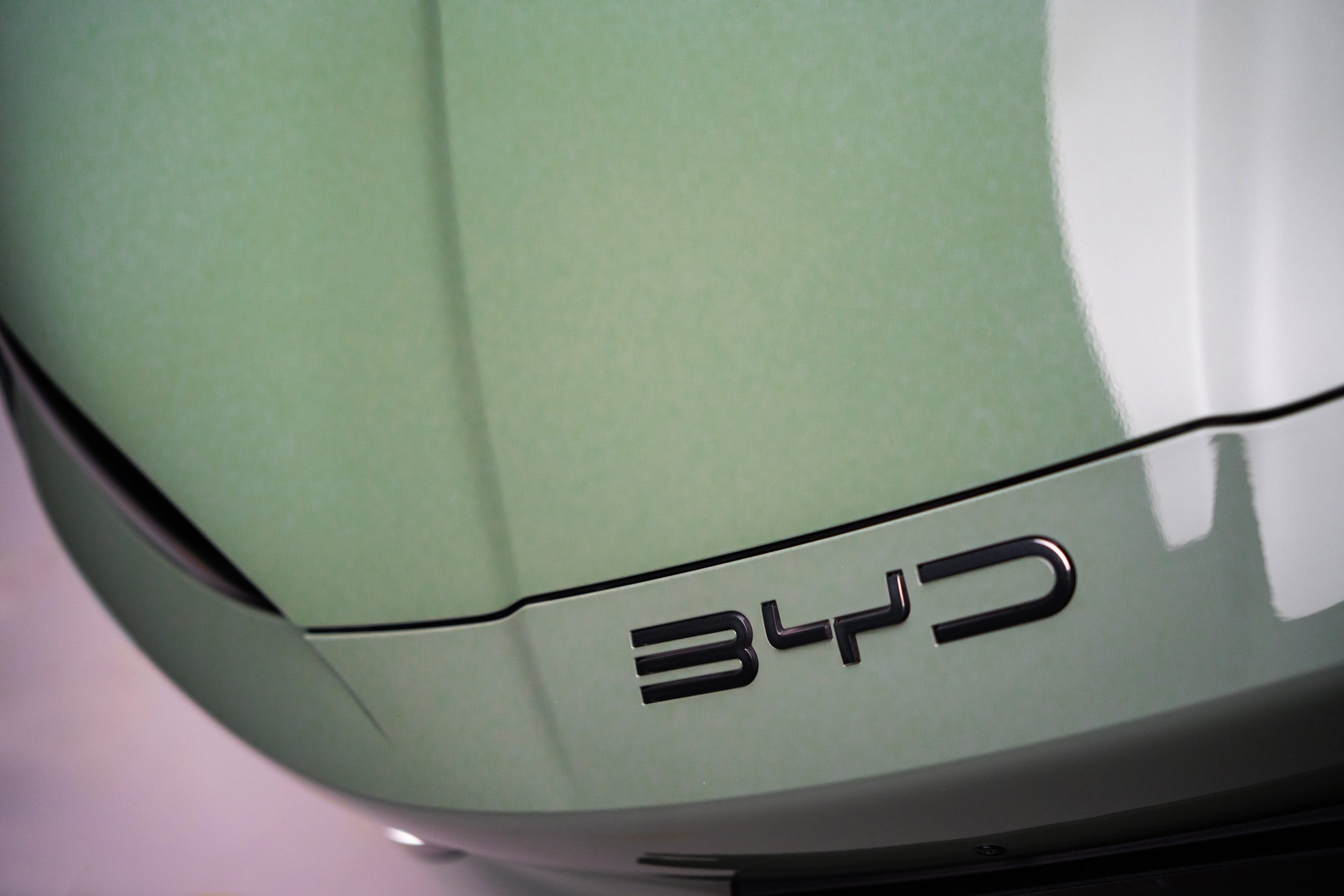
Counterpoint Research has estimated that Chinese automaker BYD will be able to overtake American electric car maker Tesla in Battery Electric Vehicle (BEV) sales this 2025.
Counterpoint’s insights were shared by the market researcher on its official website.
The (Counter)Point
Counterpoint Research’s latest Global Passenger EV Forecast suggests that BYD will be capturing a 15.7% global market share this year. This is expected to be driven by scale, innovation, and strong backing from the Chinese government.
The market researcher highlighted a number of factors that could help BYD become the world’s premier BEV maker this year. These include the company’s 1,000-kW ultra-fast charging technology and 10C charging rate batteries, which exceed Tesla’s current Supercharger offerings.
“The system can deliver 400 km of range in just 5 minutes, setting a new industry benchmark, far outpacing Tesla’s Supercharger, which adds about 275 km in 10 minutes. This technological leap is expected to significantly ease consumer concerns around charging time and boost EV adoption by reducing charging anxiety,” Abhik Mukherjee, Research Analyst at Counterpoint, stated.
The Tesla Factor
Counterpoint argued that Tesla, in comparison, is confronting several challenges, from damaged public perception due to CEO Elon Musk’s politics to geopolitical tensions between the United States and key markets like China. The market researcher highlighted Tesla’s soft sales in Europe and other markets, though it did not seem to consider the company’s changeover to the new Model Y across its global factories in Q1 2025.
“CEO Elon Musk has scored somewhat of an own goal against Tesla, and we are about to catch a glimpse of how much the company’s sales were hurt in Q1 2025. This is a big opportunity for BYD and if they deliver on the fast-charging promise, this could be the turning point for BYD and the China BEV story globally,” Counterpoint Associate Director Liz Lee stated.
Not the First Forecast
As noted in a CNEV Post report, this is not the first time that Counterpoint has predicted that BYD will overtake Tesla’s BEV sales. Last July, the market researcher expected BYD to overtake Tesla in 2024 to become the world’s top BEV maker. Tesla still beat BYD’s BEV sales at the end of 2024, however, with the American EV maker delivering a total of 1,789,226 vehicles globally versus the Chinese automaker’s 1,764,992 units.
In Q1 2025, however, BYD does seem to have momentum. BYD sold 416,388 passenger BEVs in the first quarter. As per Tesla’s Q1 vehicle delivery and production report, the company was able to deliver a total of 336,681 vehicles in the first quarter of 2025.
Elon Musk
Tesla bull Wedbush responds to Q1 deliveries: ‘A disaster on every metric’
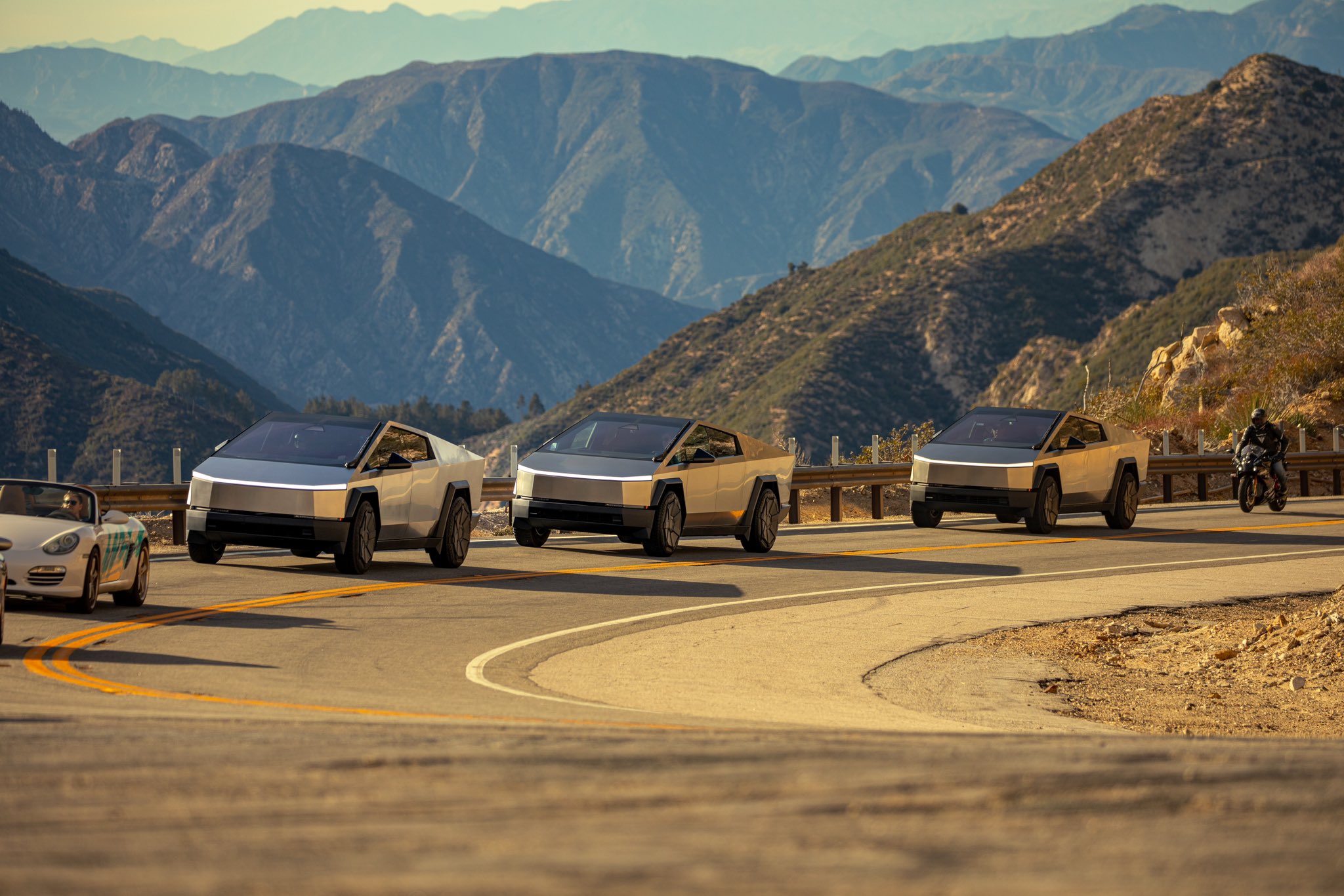
Tesla bull Wedbush has responded to the company’s lackluster Q1 delivery figures, which were released on Wednesday morning in a new note from analyst Dan Ives.
Tesla reported deliveries of 336,681 vehicles in the first quarter of the year, a far cry from the Wall Street estimate of 352,000 and whisper numbers of roughly 350,000. At first glance, it seems to be a disaster, but Tesla said it lost “several weeks of production” in Q1 due to the ramp of the new Model Y at all four of its vehicle production factories.
This could be part of the reason that the company experienced a quarter of this performance, but there are also factors stemming from CEO Elon Musk’s involvement in the U.S. government, which has created some pushback in various markets.
It’s tough to say how much of each issue caused this type of quarter, but Ives wrote in a note to investors that Wedbush could not look at this “with rose-colored glasses,” as the performance “was a disaster on every metric.”
Ives believes it is time for Musk to make a move:
“The Street and us knew a bad 1Q was coming but this was even worse than expected. The time has come for Musk….it’s a fork in the road moment. The more political he gets with DOGE the more the brand suffers, there is no debate. This quarter was an example of the damage Musk is causing Tesla. This continues to be a moment of truth for Musk to navigate this brand tornado crisis moment and get onto the other side of this dark chapter for Tesla with much better days ahead.”
Interestingly, the stock dropped over 5 percent after the delivery report. It quickly rebounded 8 percent and is currently up over 5 percent on the day after a report from Politico stated that Musk and President Donald Trump have discussed the CEO stepping back from the Department of Government Efficiency (DOGE).
Based on that, it seems that investors were looking for Musk to step back from his government duties and show more public attention to Tesla. Realistically, we do not know how much of his time is being devoted to Tesla and its EV initiative. However, it seems investors were ready to hear something along the lines of Musk being more involved and speaking openly about Tesla and its projects.
It’s not all bad. Ives still recognizes Tesla’s prowess with the rollout of robotaxi and Full Self-Driving and how much impact it could have moving forward:
“Autonomous remains the biggest transformation to the auto industry in modern-day history and in our view, Tesla will own the autonomous market in the US and globally with the launch of unsupervised FSD in Austin kicking off the autonomous era at Tesla that we value at $1 trillion alone on a sum-of-the-parts valuation…”
With that being said, he also wants Musk to balance responsibilities with DOGE and Tesla:
“BUT…Musk needs to stop this political firestorm and balance being CEO of Tesla with DOGE. The future is so bright but this is a full blown crisis Tesla is navigating now and its primarily self-inflected. We remain firmly bullish on the long-term Tesla story but Musk needs to get his act together or else unfortunately darker times are ahead for Tesla.”
Tesla shares are trading at $283.01, up 5.42% at 1:57 p.m. on the East Coast.
Investor's Corner
Tesla (TSLA) shares date for “Company Update” and Q1 2025 earnings call
Tesla seems to be planning something slightly different for the upcoming event.
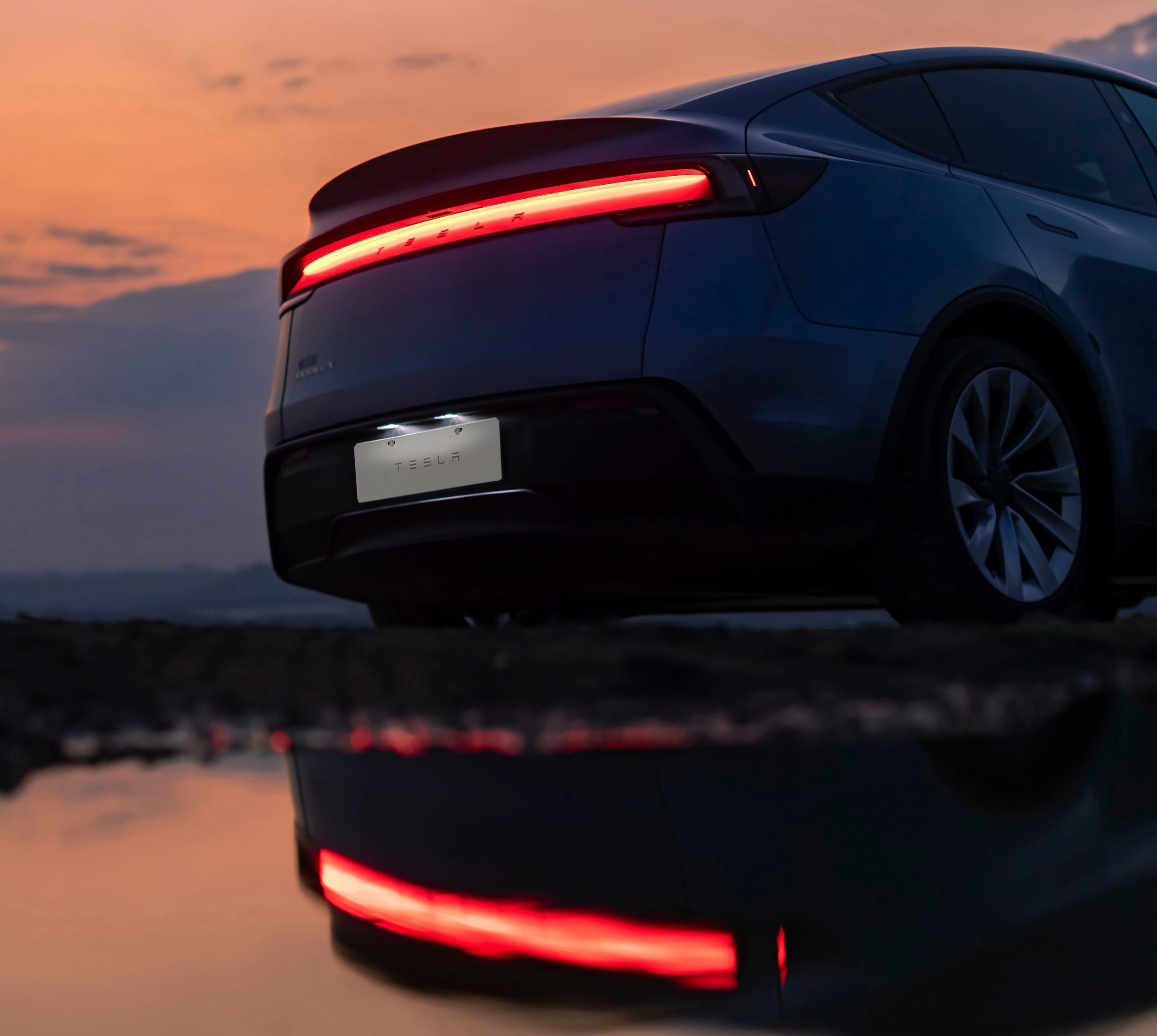
Tesla (NASDAQ:TSLA) has announced the date for its upcoming first quarter 2025 earnings call.
Interestingly enough, the company seems to be planning something slightly different for the upcoming event.
Tesla Q1 2025 Earnings Call Date
As shared by Tesla in its Q1 2025 vehicle production and delivery report, the company would be holding its first-quarter earnings call on Tuesday, April 22, 2025, at 4:30 p.m. Central Time / 5:30 p.m. Eastern Time. Similar to past earnings calls, the event will be livestreamed. An archived version of the session would also be shared on the company’s website.
Prior to the earnings call, Tesla will be releasing its Q1 2025 Update Letter. The Q1 2025 Update Letter will be released after markets close on April 22.
A Company Update
Tesla enthusiasts and TSLA bulls have observed that the electric vehicle maker adjusted its wording a bit in its Q1 2025 vehicle delivery and production report. As could be seen in the release, Tesla noted that it would also be holding a “Company Update” on April 22. This is the first time that such an event has been referenced by the electric vehicle maker with its quarterly earnings call.
“In addition to posting first quarter results, Tesla management will hold a live company update and question and answer webcast that day,” Tesla wrote in its Q1 2025 vehicle delivery and production report. Tesla also referenced a “Company Update” in a post on its official X account.
Expectations are high that Tesla will discuss some of its highly anticipated projects during its Company Update. These may include, among other things, new affordable vehicles that were mentioned in the Q4 and Full Year 2024 Update Letter.
“Plans for new vehicles, including more affordable models, remain on track for start of production in the first half of 2025. These vehicles will utilize aspects of the next generation platform as well as aspects of our current platforms and will be produced on the same manufacturing lines as our current vehicle line-up,” Tesla wrote.
-

 News2 weeks ago
News2 weeks agoTesla aiming to produce first “legion” of Optimus robots this 2025
-
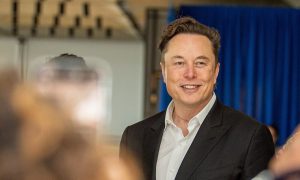
 Elon Musk1 week ago
Elon Musk1 week agoTesla CEO Elon Musk’s simple message to vandals
-
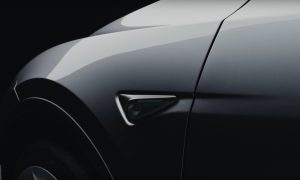
 Elon Musk2 weeks ago
Elon Musk2 weeks agoElon Musk confirms two measures Tesla is taking to fight vandalism
-
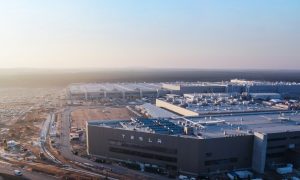
 News2 weeks ago
News2 weeks agoTesla’s Giga Berlin director responds to anti-Musk criticism
-
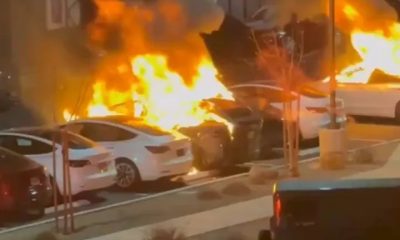
 Elon Musk1 week ago
Elon Musk1 week agoTesla vandal who lit Las Vegas repair center on fire arrested
-

 Elon Musk1 week ago
Elon Musk1 week agoElon Musk clarifies Trump tariff effect on Tesla: “The cost impact is not trivial”
-
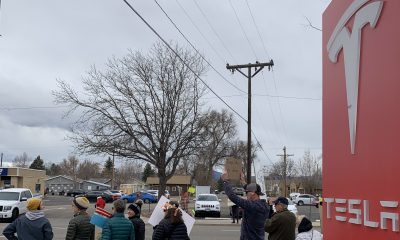
 Elon Musk1 week ago
Elon Musk1 week agoTesla vehicles hit by ATV, suspect caught by Sentry Mode
-

 Elon Musk2 weeks ago
Elon Musk2 weeks agoElon Musk to file lawsuit against former US Rep Jamaal Bowman: “I’ve had enough”








